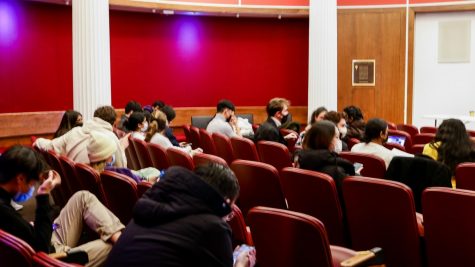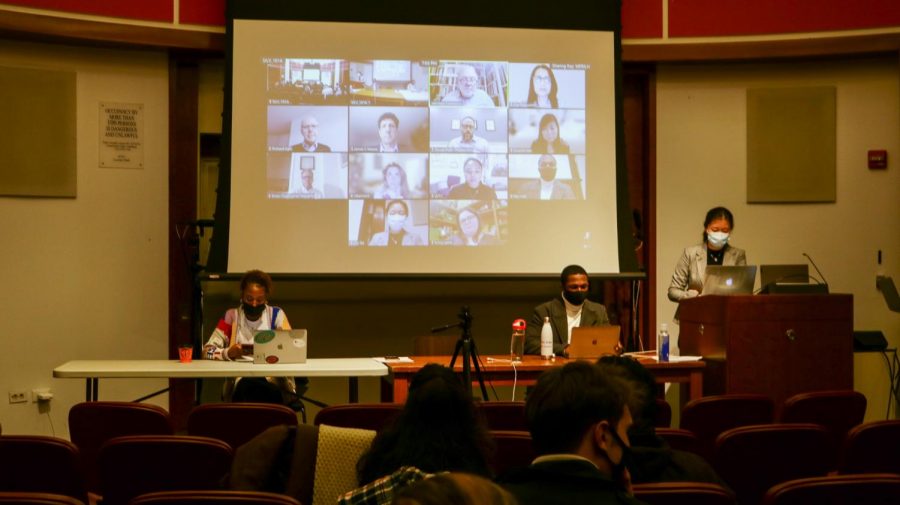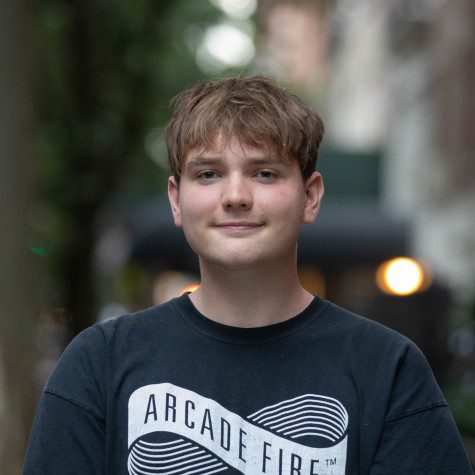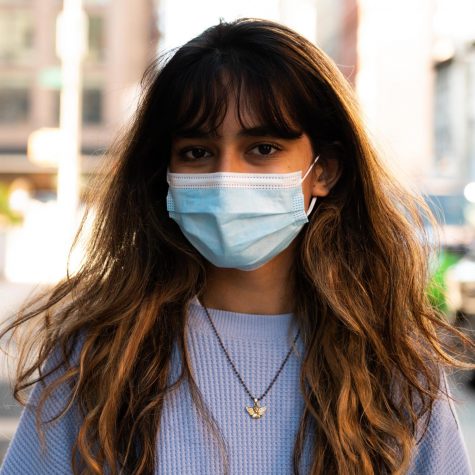CAS admins field questions on academic opportunities and mental health
Interim CAS dean Matthew Santirocco held his first town hall of the semester in its last week, focusing on student mental health resources and academic opportunities.
The fall semester CAS Student Council Town Hall was held on Dec. 7 in Jurow Hall located on the first floor of Silver Center. This town hall had virtual and in-person participation options and students could submit questions for the panelists beforehand. (Staff Photo by Shaina Ahmed)
December 8, 2021
Matthew Santirocco, interim dean of NYU’s College of Arts and Science, presided over a town hall discussing student mental health resources and opportunities for students on Dec. 7. CAS senator Ron Hall and CAS president Lily Ge asked students’ questions to the panel, which also featured several other administrators, including:
• Richard Kalb, associate dean for students
• Zoe Ragouzeos, assistant vice president for student mental health
• James Mazza, assistant dean for academic affairs
• Soomie Han, assistant dean for academic support services
• Candace Sumner-Robinson, assistant dean for diversity & international advising
• Kristy Lamb, assistant dean for preprofessional advising
Questions have been edited for length and clarity. Administrators’ responses have been printed as they were spoken.
When will concurrent virtual options become permanent in every CAS classroom?
Santirocco: “Professors will ultimately decide whether classes will be recorded or given a zoom option. We have learned to live with technology in an emergency situation. We are now learning to live with that experience.”
Would NYU consider adding more days off in the fall?
Santirocco: “We are subject to state regulations for times we meet during the semester. So that gives us a real constraint. But within the constraints in the calendar, we have tried different patterns of time off and I do not know where those conversations are right now.”
Does NYU have plans to expand mental health services? For example, does the university plan to hire more therapists and offer a wider range of group therapy sessions?
Ragouzeos: “Just today I submitted my request for additional clinical staff. I do want to recognize the university has had resources in the past, but there continues to be a need both proactively and in response to student needs. We would be interested in any more support groups, but recommend you look at the ones we have currently.”
By the creation of this panel, it seems as though the school cares about students’ mental health. Why does the school allow final exams to take place before the final exam week?
Santirocco: “The college does send out a memo and does remind faculty each year that the exams are to be given during exam periods. This is a matter of concern and when this happens we want to know about it so we can help you.”

It seems as though many professors are doing this and stacking midterms on the same dates. Is there anything we can do to change that?
Kalb: “Sometimes students that have three exams on the same day, it is easy for them to go to their professors and they will likely be flexible with changing it.”
Mazza: “We have a good track record in one area — first-year courses for biology and chemistry. We ensure that those departments that give Friday afternoon midterms do not give them in the same week. As for other departments, I can jot that down for the future, maybe for our biggest departments, so I can put a pin in for that.”
What is the current plan for expanding scholarships and funding for Black and Indigenous students?
Sumner-Robinson: “The Justice, Equity, Diversity, and Inclusion Council has been funding opportunities for research and connecting students to pathway opportunities as well as post-grad opportunities. The council has been meeting bi-weekly to gather more information in order to be a better service and create more resources.”
Do you have any suggestions for how to approach pre-med experiences as a first-year while COVID-19 is ongoing?
Lamb: “We are starting to see in-person volunteer opportunities open back up in hospitals. But hospitals are very concerned with your safety. If you aren’t ready to go into a clinical environment yet, think about what you are able to do in your community. If you are a first-year student, be patient as these opportunities will open up more soon.”
Many of my pre-med peers have mentioned how helpful the University Learning Center’s math and science study slams are. As a humanities student, specifically an economics major, is there a way to advocate for the creation of study slams for humanities foundational courses like Introduction to Microeconomics and Introduction to Macroeconomics?
Ham: “We have on and off launched study slams for various classes and the response hasn’t been as consistent as science classes. We don’t love study slams in the sense that we don’t want to be this one time panic thing — we have learning groups and other weekly events.”
Contact Kristian Burt at [email protected].





























































































































































